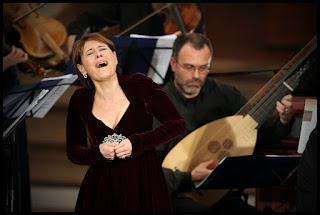Classic opera, a captivating fusion of music, drama, and vocal prowess, has stood the test of time as one of the most enduring and beloved art forms in history. Originating in Italy during the late 16th century, opera quickly spread across Europe, leaving an indelible mark on the world of performing arts. With its unique blend of powerful vocals, orchestral accompaniment, and theatrical storytelling, classic opera continues to enchant audiences worldwide, transcending cultural barriers and eras. In this article, we explore the essence of classic opera, its historical significance, and its enduring relevance in the contemporary world.
The Genesis of Classic Opera
The term "opera" finds its roots in the Italian word "opera in musica," meaning "a work in music." Classic opera emerged during the Renaissance period when the Florentine Camerata, a group of intellectuals and musicians, sought to revive ancient Greek drama with music. Their experiments culminated in the first recorded opera, Jacopo Peri's "Dafne," in 1597. This groundbreaking work laid the foundation for the development of opera as a new and distinct art form.
The Golden Age of Opera
The 17th and 18th centuries marked the Golden Age of Opera, witnessing the rise of influential composers like Claudio Monteverdi, Wolfgang Amadeus Mozart, and George Frideric Handel. Opera houses were established across Europe, becoming centers of cultural exchange and artistic expression. The dramatic plots, ornate costumes, and elaborate sets created a spectacle that captivated audiences from all walks of life, and opera quickly gained popularity among aristocrats and the general public alike.Classic opera covers a vast array of themes, from tragic love stories to historical events and mythical legends. The librettos, or opera's scripts, are written in various languages, including Italian, German, French, and English. Some of the most celebrated operas include "La Traviata" by Giuseppe Verdi, "Carmen" by Georges Bizet, and "The Marriage of Figaro" by Mozart.
Classic opera also boasts distinct styles, such as opera seria, characterized by serious and heroic subjects, and opera buffa, featuring comedic and lighter themes. Additionally, opera composers often infused their music with national flavors, reflecting the cultural diversity of their times.
As opera evolved, it branched into different sub-genres, including romantic opera, verismo, and the modernistic approaches of the 20th century. Composers like Richard Wagner and Giacomo Puccini further pushed the boundaries of opera, exploring new themes and experimenting with orchestration and vocal techniques.
In the contemporary era, classic opera has also seen adaptations and reinterpretations, with modern composers integrating electronic elements and unconventional storytelling approaches. These innovative adaptations ensure that opera remains a living and evolving art form, continuing to attract new generations of audiences.
The Universality of Classic Opera
Despite its European origins, classic opera's appeal extends far beyond its birthplace. Over the centuries, opera has transcended cultural and geographical boundaries, captivating audiences across the globe. Its power lies in its ability to evoke raw emotions, portraying human experiences that resonate universally. Whether performed in grand opera houses, open-air venues, or even through digital platforms, classic opera continues to find new admirers, furthering its relevance in contemporary society.
Classic opera stands as a testament to humanity's creative spirit, bridging centuries and cultures through its evocative storytelling and soul-stirring melodies. From its humble beginnings in Italy to its global reach in the present day, opera has left an indelible mark on the world of performing arts. As we celebrate the legacy of classic opera, we embrace an art form that has stood the test of time, enriching the lives of countless individuals and inspiring generations to come.

Σχόλια
Δημοσίευση σχολίου